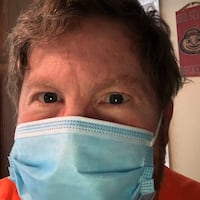Health commissioners were concerned enough to release a public alert, which noted one way people can avoid using dirty needles is to use syringe and condom exchange, which are available in Middletown and Fairfield, but not Hamilton or other Butler County communities.
“The increase is attributed to cases among people who inject drugs,” according to a joint release by the county’s three health districts, plus Hamilton County Health Commissioner Greg Kesterman, whose agency holds the regional grant for dealing with HIV, including Butler County.
Butler County last year saw a double-digit increase in drug overdose deaths to 177, the highest since the county’s recent record of 232 deaths in 2017.
Martin Schneider, spokesman for Butler County Coroner Dr. Lisa Mannix, last month said of the 177 overdose deaths handled by the coroner’s office, 155 (almost 88 percent) involved opioids, “overwhelmingly fentanyl.”
While officials put out a news release about the issue, they did not release information about what parts of the county have seen the HIV cases appear, apparently in an effort to protect the privacy of the HIV patients or where they may be clustered.
“While this represents just eight new cases, the percent increase is alarming and something we need to understand so we can implement prevention tactics,” said Jackie Phillips Carter, Middletown’s health commissioner.
HIV is no longer a life-ending disease, as long as it’s detected and treated, Butler County Health Commissioner Jennifer Bailer said.
“There are effective treatments for HIV now,” she said. “HIV is not the death sentence it was once thought to be. Many people live long and productive lives with an HIV diagnosis. But they have to be tested and treated. The best option is prevention. If a person is engaging in risky behavior with injection drugs or sex, we urge them to use clean equipment, practice safer sex, and by all means get tested.”
There are two sites for the bloodborne infectious disease prevention program, where people can learn about overdose prevention, communicable disease and injection safety, and testing for diseases, as well as referrals for medical treatment, plus hepatis vaccinations. People also can properly dispose of needles and receive sterile ones to prevent spread of disease.
They also can receive the overdose-reversing drug, Narcan, condoms and other personal-care items.
Those locations are in Fairfield, behind Mercy Health-Fairfield Hospital (it’s temporarily closed but officials hope will open in coming months); and and Middletown, at 1300 Reynolds Ave. The Middletown location is open from 10 a.m. to 1 p.m. on Tuesdays.
“As the grantee for HIV remediation in Southwest Ohio, we are working closely with Butler County and the cities of Hamilton and Middletown to monitor the situation and provide support for reducing cases,” Kesterman, the Hamilton County health official, said in the news release. “We are certainly open to expanding the Exchange Project to additional locations in the region.”
Phillips Carter offered this advice: “If you are using injection drugs, it is important to make sure you have access to clean equipment to prevent the spread of not only HIV, but also hepatitis and other bloodborne infections.”
She added: “It’s also important to practice safe sex. If you need condoms, any of the local health departments or the Exchange Project can provide them for you. Please take advantage of the Exchange Project services to keep yourself and others healthy.”
About the Author
